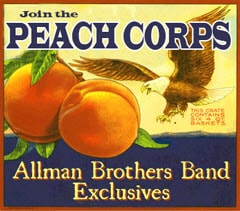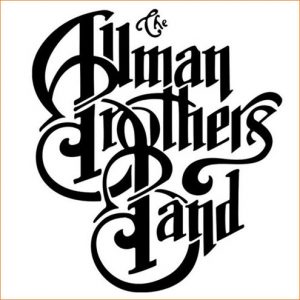By DAN LEROY
12 September 2004
The New York Times
(c) 2004 New York Times Company
With his long, lank blond hair, open-toed Birkenstocks and laid-back demeanor, Grayson Brulte, 21, of Fairfield is easy to envision as a concert bootlegger, lugging a recorder into shows and emerging with live tapes of Phish or the Dave Matthews Band.
Technically speaking, Mr. Brulte said he had never bootlegged a show, but remains one of the preeminent figure in bootlegging circles. As the founder of the bootleg-sharing Web site Sharingthegroove.org, he oversees an online collection of live, demo and rare recordings that includes music from nearly every popular genre. The network he has created makes it possible for anyone with Internet access to download thousands of bootleg recordings for free.
”It used to surprise me every day, the things that people shared,” Mr. Brulte said. ”You’d get stuff like Bob Marley tapes that he made at his girlfriend’s house. But it’s at the point now where I’m not shocked any more.”
The variety of shows, which last on the site as long as at least one user keeps them active, can be staggering. Users have been able to download a 1960’s European show by the jazz trumpeter Miles Davis, an unreleased album from Brian Wilson of the Beach Boys, or a rare concert from the brief 90’s heyday of the Liverpool group the La’s.
Mr. Brulte, who has more than 10,000 bootleg CD’s in his Fairfield apartment, started Sharingthegroove early in 2003, first planning it as a tribute to the band Phish. Then, while discussing it with a friend, ”something clicked, and I just said, ‘Why don’t we make it a site for all kinds of music?”’
Mr. Brulte’s idea, and his site, has inspired others. Rolf Wagner, 45, an information technology consultant in Bensheim, Germany, started a similar service, EZ Torrent (easytree.org), after seeing Sharingthegroove.
”Using Bit Torrent for bootleg trading was a groundbreaking new idea,” Mr. Wagner wrote in an e-mail message about the computer program that powers both sites. ”I’d say most of the prior bootleg traders learned Bit Torrent because there was Sharingthegroove.”
The big question, however, in this post-Napster era , is whether the artists being bootlegged and the recording industry as a whole are going to hold still for widespread digital distribution of concert recordings. There are other bootleg sharing services on the Internet, but many focus on specific bands or genres, and few offer the variety and volume of shows available through Sharingthegroove, which could make it a target if a crackdown occurs. Mr. Brulte said the site has 200,000 registered users.
For the moment, the Recording Industry Association of America, which sued Napster over copyright infringement, declined to comment on sites like Sharingthegroove and whether the group would initiate similar lawsuits. Sharing concert bootlegs is illegal, said the entertainment lawyer David Moser, the same as sharing studio recordings.
”As far as the law is concerned, there isn’t any distinction,” said Mr. Moser, an assistant professor at the Mike Curb College of Entertainment and Music Business at Nashville’s Belmont University and the author of the book ”Music Copyright for the New Millennium.”
Many bands choose to ignore bootlegging because of the unspoken assumption that the tapes will be traded among fans, not sold for profit.
The guitarist Bob Weir of the Grateful Dead, one of the most-bootlegged musical groups, said he ”totally endorses” Sharingthegroove and other bootleg sites. ”If people want to trade online, they do that with our blessings,” he said.
Not all bands feel the same way. Bert Holman, manager of the Allman Brothers Band, asked Sharingthegroove earlier this year to remove some of the band’s shows from the site, which complied.Many bands like the Allman Brothers and the Dead sell their own official bootlegs at concerts, allowing fans to own a high-quality copy of the show they just witnessed. Mr. Holman said the shows he asked be removed from Sharingthegroove were concerts the Allman Brothers ”sell, or were contemplating selling.”
”What the Allman Brothers support is peer-to-peer distribution,” he said. ”You go to a show, you make a tape, you want to make a copy for your friend, that’s your business. But we’re not in the business of putting other people in business, by creating a distribution system.”
One of his fears, Mr. Holman said, is that bootlegs offered on Sharingthegroove will later be sold by unscrupulous downloaders. ”Is it fair for a band, is it fair for a musician, is it fair for a songwriter, for someone to make a copy of a show and then go onto eBay and sell it?” he asked.
Mr. Brulte said ”five or six bands” have asked that their material be removed from Sharingthegroove, but said the community does a good job of policing itself. He said members are vigilant about monitoring sites like eBay for bootleg sales and notify eBay of violations. Sharingthegroove’s moderators also remove any copyrighted material they discover on their site, he said.
Mr. Wagner of EZ Torrent said he bans material from bands like the Allman Brothers and guitarists Bill Frisell and John Scofield, who have said they don’t want their unofficially recorded live, demo, and studio material to be distributed electronically.
Those steps are necessary if people want to maintain access to shows and still keep their favorite bands in business, said Mr. Weir of the Grateful Dead.
”You must honor what you love,” he said. ”That has to be the law. There’s a karmic connection there.”
Mr. Brulte, who does freelance computer work, uses the Bit Torrent technology to power Sharingthegroove. Bit Torrent is a file-sharing program that allows users to download a file from many other users, rather than from a central server like Napster. In early August, the site went down while it was redesigned. Mr. Brulte said he expected the site to be back up by late last week.
”My own niche is to network people,” said Mr. Brulte, who runs the site with the help of a group of five other friends from around the county. ”And without the members of the community, there is no Sharingthegroove.”
He said their commitment to the site, which accepts no advertising and exists on donations from users, is evident. (He said he is breaking even.) It’s not uncommon to see a member put on the site a bootleg recording from a concert that occurred just hours earlier. ”Some people do it from their hotel rooms,” Mr. Brulte said.
Mr. Moser, the entertainment lawyer, said he did not expect sites like Sharingthegroove to become a Napster-like target any time soon. Because record companies don’t normally own the copyrights on concert performances, ”I would probably say bootleg sharing is not quite as big a concern” as the sharing of studio recordings, he said.
The responsibility of pursuing bootleggers will likely fall to the individual artists, Mr. Moser said. And Mr. Holman, the manager of the Allman Brothers, said, ”We don’t have the time or money” to pursue a Napster-style lawsuit.



